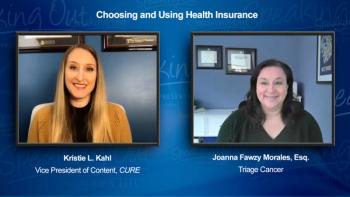
As part of its Speaking Out video series, CURE spoke with Joanna Fawzy Morales, Esq., from Triage Cancer, about working during a cancer diagnosis and its treatments, and what rights individuals have when it comes to employment and insurance.

As part of its Speaking Out video series, CURE spoke with Joanna Fawzy Morales, Esq., from Triage Cancer, about working during a cancer diagnosis and its treatments, and what rights individuals have when it comes to employment and insurance.

As part of its Speaking Out video series, CURE spoke with Joanna Fawzy Morales, Esq., from Triage Cancer, about policies around taking extended time off from work for patients with cancer and their caregivers.

As part of its Speaking Out video series, CURE spoke with Monica Fawzy Bryant, Esq.,, from Triage Cancer, about planning ahead after a cancer diagnosis.

States that expanded Medicaid had improved survival rates in patients with pancreatic and gastric cancers, with greater improvements in Black patients for some analyses.
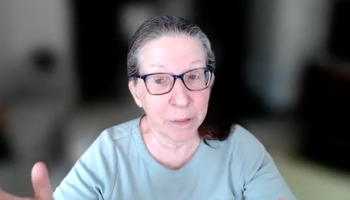
Research showed a survival improvement in adolescent and young adult cancer survival after the Dependent Care Expansion allowed patients to be on their parents’ insurance until the age of 26.
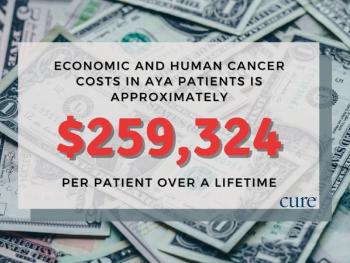
The costs related to a cancer diagnosis go beyond treatment, reflecting the altered participation in the workforce for adolescents and young adults.

The financial stress from a colorectal cancer diagnosis can negatively impact sleep and pain tolerance in partners of patients with colorectal cancer, recent research showed.

The Inflation Reduction Act is decreasing the out-of-pocket costs for multiple oncology drugs.

Patients with cancer may decide to share their diagnosis with their employer but approaching it in a way that is most comfortable to the patient may make it a more effective conversation.
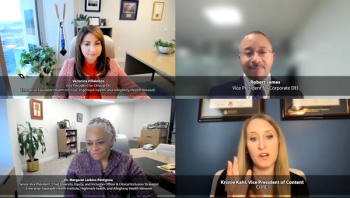
In this Educated Patient® webinar, CURE® spoke with experts from Allegheny Health Network about addressing disparities in diversity, equity and inclusion in cancer care.
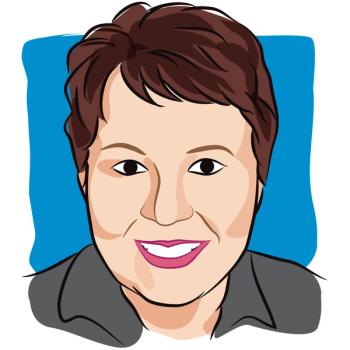
Cancer often brings with it bad news, including expensive bills, but one day, a surprise came – one I’ll never forget.

Patients who are financially struggling due to job loss after a cancer diagnosis may benefit from multidisciplinary back-to-work programs and financial counseling, according to an expert.

Virtual oncology visits may lessen the financial toxicity of cancer treatments, according to recent research.

Having cancer care denied or delayed is not a harmless situation when your life is on the line.

When people say. “It’s just $35 to see a specialist,” they miss the entire issue of cancer-related financial toxicity.

Pets may be like family to some individuals but caring for them during illnesses such as cancer may force some to make a difficult decision.

Cancer-related pain, especially when severe, is associated with negative effects on patients’ employment and financial status, recent findings showed.

I can’t imagine my daughter not getting important cancer treatments because we could not afford it or because insurance denied it. Unfortunately, that is the situation for many patients.

Many patients with cancer who have limited financial resources or high insurance co-pays have started to use crowdfunding campaigns to pay for the daunting bills associated with their treatment and subsequent care.

As the average price of regular-grade gas in the United States speeds past $4.30 a gallon, many patients with cancer may be wondering how they can afford to get to and from cancer treatments. Luckily, there’s assistance to make travel less expensive.

Although multiple myeloma survival rates have improved over the past 20 years, the survival gap among socioeconomic groups has widened.

When patients with cancer are faced with receiving a prior authorization from their insurance provider for oral anticancer drugs, it is important that they advocate for themselves, according to an expert.

“The financial burden is another gift that cancer keeps on giving,” writes the mother and caregiver of a young woman with breast cancer.

Talking with a doctor about costly cancer treatments and being frank with health care teams can ease financial distress for patients with cancer.

“More and more (patients and physicians) need to work together in partnership throughout the cancer journey in order to optimize and make the journey the best possible that we can for every single patient,” says an expert from the Roswell Park Comprehensive Cancer Center.

Experts urge parents to continue to have conversations with their children about the financial hardships that may occur because of a pediatric cancer diagnosis.

A woman with metastatic cancer explains how she found a copay assistance program and specialty pharmacy to help manage the cost of pricey medications, though not without a few bumps in the road.

Newer cancer therapies easily cost upward of $100,000. Why so much? Who sets the prices and what can patients do if they can't afford them?

Parents who receive a diagnosis of cancer are often faced with the trials of prioritizing themselves over their children, causing stress, burnout and disruption in cancer care.

To avoid the financial burden of costly therapies, patients with cancer receiving immunotherapy treatments should talk with their health care team and not settle for no as an answer from their health insurance provider, according to an expert.